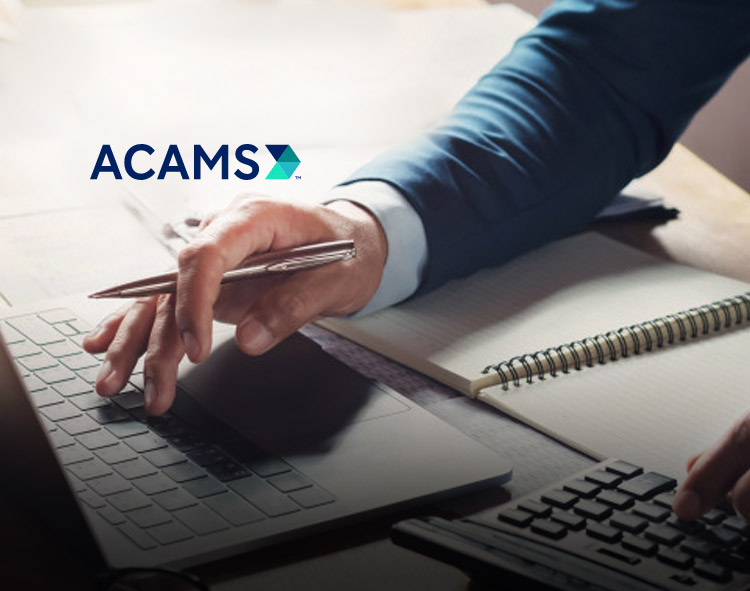The CTMA program sets a new standard on how transaction alerts should be reviewed, investigated and potentially escalated to SARs
As part of its ongoing effort to strengthen anti-financial crime compliance globally, ACAMS has launched its first-ever certification program focused on transaction monitoring roles for early career professionals and their supervisors. The Certified Transaction Monitoring Associate (CTMA) program establishes a new global standard for compliance staff tasked with reviewing, investigating and escalating the transactional alerts that could potentially lead to the filing of suspicious activity reports (SARs).
Read More: GlobalFintechSeries Interview with Gerard Griffin, CEO at AnyDay
ACAMS’ new Transaction Monitoring Certification sets new standard on how transaction alerts should be reviewed, investigated and potentially escalated to SARs
Association members pursuing their certification will learn how rules and other parameters are used to generate alerts on transactions linked to an array of customer types and products, and at various points of client engagement. Successful candidates will be equipped to distinguish valid alerts from false positives, analyze fluctuations in alert volumes, investigate transactional activity for red flags, and create audit trails that document the rationales behind decisions to escalate or clear alerts.
Read More: The Influence of Mobile Apps WeChat Pay and Alipay Extends Far Beyond China’s Borders
“The CTMA program is another milestone in ACAMS accreditation that, along the launch of our Certified Know Your Customer Associate (CKYCA) program last month, reflects our renewed focus on helping institutions strengthen their first line of defense against money laundering and other illicit activities. When combined with six to twelve months of experience, the CTMA program is expected to equip candidates with the skills needed to handle alerts from the moment they are generated to the point when they are either cleared or escalated as potential SARs,” Angela Salter, Interim President of ACAMS said.
Salter continued, “Transaction monitoring is particularly important because it can directly lead to the sort of actionable intelligence law enforcement investigators need most and is being looked at very seriously around the world. In July, five of the largest banks in the Netherlands—ING, Rabobank, ABN Amro, Triodos Bank and De Volksbank—formally established Transaction Monitoring Netherlands, or TMNL, a first-of-its-kind mechanism tasked with identifying unusual wires and payments between their institutions.”
Read More: BillingPlatform Increases Standing in MGI 360 Ratings Report for Agile Monetization Solutions
